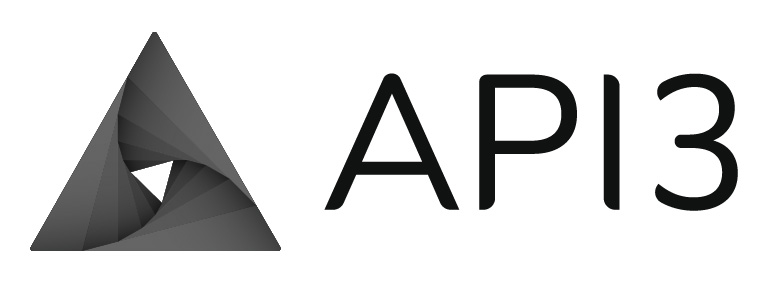-
Account Access
-
Account Access is OBP View system. The Account owners can create the view themselves. And they canMore...
- Create (DAuth) User with Account Access
-
v5.1.0 filtered by tag: DAuth (2 APIs)
Create (DAuth) User with Account Access
This endpoint is used as part of the DAuth solution to grant access to account and transaction data to a smart contract on the blockchain.
Put the smart contract address in username
For provider use "dauth"
This endpoint will create the (DAuth) User with username and provider if the User does not already exist.
Authentication is Mandatory and the logged in user needs to be account holder.
For information about DAuth see below:
DAuth
DAuth Introduction, Setup and Usage
DAuth is an experimental authentication mechanism that aims to pin an ethereum or other blockchain Smart Contract to an OBP "User".
In the future, it might be possible to be more specific and pin specific actors (wallets) that are acting within the smart contract, but so far, one smart contract acts on behalf of one User.
Thus, if a smart contract "X" calls the OBP API using the DAuth header, OBP will get or create a user called X and the call will proceed in the context of that User "X".
DAuth is invoked by the REST client (caller) including a specific header (see step 3 below) in any OBP REST call.
When OBP receives the DAuth token, it creates or gets a User with a username based on the smart_contract_address and the provider based on the network_name. The combination of username and provider is unique in OBP.
If you are calling OBP-API via an API3 Airnode, the Airnode will take care of constructing the required header.
When OBP detects a DAuth header / token it first checks if the Consumer is allowed to make such a call. OBP will validate the Consumer ip address and signature etc.
Note: The DAuth flow does not require an explicit POST like Direct Login to create the token.
Permissions may be assigned to an OBP User at any time, via the UserAuthContext, Views, Entitlements to Roles or Consents.
Note: DAuth is enabled.
Note: The DAuth client is responsible for creating a token which will be trusted by OBP absolutely!
To use DAuth:
1) Configure OBP API to accept DAuth.
Set up properties in your props file
# -- DAuth --------------------------------------
# Define secret used to validate JWT token
# jwt.public_key_rsa=path-to-the-pem-file
# Enable/Disable DAuth communication at all
# In case isn't defined default value is false
# allow_dauth=false
# Define comma separated list of allowed IP addresses
# dauth.host=127.0.0.1
# -------------------------------------- DAuth--
Please keep in mind that property jwt.public_key_rsa is used to validate JWT token to check it is not changed or corrupted during transport.
2) Create / have access to a JWT
The following videos are available:
* DAuth in local environment
HEADER:ALGORITHM & TOKEN TYPE
{
"alg": "RS256",
"typ": "JWT"
}
PAYLOAD:DATA
{
"smart_contract_address": "0xe123425E7734CE288F8367e1Bb143E90bb3F051224",
"network_name": "AIRNODE.TESTNET.ETHEREUM",
"msg_sender": "0xe12340927f1725E7734CE288F8367e1Bb143E90fhku767",
"consumer_key": "0x1234a4ec31e89cea54d1f125db7536e874ab4a96b4d4f6438668b6bb10a6adb",
"timestamp": "2021-11-04T14:13:40Z",
"request_id": "0Xe876987694328763492876348928736497869273649"
}
VERIFY SIGNATURE
RSASHA256(
base64UrlEncode(header) + "." +
base64UrlEncode(payload),
) your-RSA-key-pair
Here is an example token:
eyJhbGciOiJIUzI1NiIsInR5cCI6IkpXVCJ9.eyJzbWFydF9jb250cmFjdF9hZGRyZXNzIjoiMHhlMTIzNDI1RTc3MzRDRTI4OEY4MzY3ZTFCYjE0M0U5MGJiM0YwNTEyMjQiLCJuZXR3b3JrX25hbWUiOiJFVEhFUkVVTSIsIm1zZ19zZW5kZXIiOiIweGUxMjM0MDkyN2YxNzI1RTc3MzRDRTI4OEY4MzY3ZTFCYjE0M0U5MGZoa3U3NjciLCJjb25zdW1lcl9rZXkiOiIweDEyMzRhNGVjMzFlODljZWE1NGQxZjEyNWRiNzUzNmU4NzRhYjRhOTZiNGQ0ZjY0Mzg2NjhiNmJiMTBhNmFkYiIsInRpbWVzdGFtcCI6IjIwMjEtMTEtMDRUMTQ6MTM6NDBaIiwicmVxdWVzdF9pZCI6IjBYZTg3Njk4NzY5NDMyODc2MzQ5Mjg3NjM0ODkyODczNjQ5Nzg2OTI3MzY0OSJ9.XSiQxjEVyCouf7zT8MubEKsbOBZuReGVhnt9uck6z6k
3) Try a REST call using the header
Using your favorite http client:
GET https://api3.openbankproject.com/obp/v3.0.0/users/current
Body
Leave Empty!
Headers:
DAuth: your-jwt-from-step-above
Here is it all together:
GET https://api3.openbankproject.com/obp/v3.0.0/users/current HTTP/1.1
Host: localhost:8080
User-Agent: curl/7.47.0
Accept: /
DAuth: eyJhbGciOiJIUzI1NiIsInR5cCI6IkpXVCJ9.eyJzbWFydF9jb250cmFjdF9hZGRyZXNzIjoiMHhlMTIzNDI1RTc3MzRDRTI4OEY4MzY3ZTFCYjE0M0U5MGJiM0YwNTEyMjQiLCJuZXR3b3JrX25hbWUiOiJFVEhFUkVVTSIsIm1zZ19zZW5kZXIiOiIweGUxMjM0MDkyN2YxNzI1RTc3MzRDRTI4OEY4MzY3ZTFCYjE0M0U5MGZoa3U3NjciLCJjb25zdW1lcl9rZXkiOiIweDEyMzRhNGVjMzFlODljZWE1NGQxZjEyNWRiNzUzNmU4NzRhYjRhOTZiNGQ0ZjY0Mzg2NjhiNmJiMTBhNmFkYiIsInRpbWVzdGFtcCI6IjIwMjEtMTEtMDRUMTQ6MTM6NDBaIiwicmVxdWVzdF9pZCI6IjBYZTg3Njk4NzY5NDMyODc2MzQ5Mjg3NjM0ODkyODczNjQ5Nzg2OTI3MzY0OSJ9.XSiQxjEVyCouf7zT8MubEKsbOBZuReGVhnt9uck6z6k
CURL example
curl -v -H 'DAuth: eyJhbGciOiJIUzI1NiIsInR5cCI6IkpXVCJ9.eyJzbWFydF9jb250cmFjdF9hZGRyZXNzIjoiMHhlMTIzNDI1RTc3MzRDRTI4OEY4MzY3ZTFCYjE0M0U5MGJiM0YwNTEyMjQiLCJuZXR3b3JrX25hbWUiOiJFVEhFUkVVTSIsIm1zZ19zZW5kZXIiOiIweGUxMjM0MDkyN2YxNzI1RTc3MzRDRTI4OEY4MzY3ZTFCYjE0M0U5MGZoa3U3NjciLCJjb25zdW1lcl9rZXkiOiIweDEyMzRhNGVjMzFlODljZWE1NGQxZjEyNWRiNzUzNmU4NzRhYjRhOTZiNGQ0ZjY0Mzg2NjhiNmJiMTBhNmFkYiIsInRpbWVzdGFtcCI6IjIwMjEtMTEtMDRUMTQ6MTM6NDBaIiwicmVxdWVzdF9pZCI6IjBYZTg3Njk4NzY5NDMyODc2MzQ5Mjg3NjM0ODkyODczNjQ5Nzg2OTI3MzY0OSJ9.XSiQxjEVyCouf7zT8MubEKsbOBZuReGVhnt9uck6z6k' https://api3.openbankproject.com/obp/v3.0.0/users/current
You should receive a response like:
{
"user_id": "4c4d3175-1e5c-4cfd-9b08-dcdc209d8221",
"email": "",
"provider_id": "0xe123425E7734CE288F8367e1Bb143E90bb3F051224",
"provider": "ETHEREUM",
"username": "0xe123425E7734CE288F8367e1Bb143E90bb3F051224",
"entitlements": {
"list": []
}
}
Under the hood
The file, dauth.scala handles the DAuth,
We:
-> Check if Props allow_dauth is true
-> Check if DAuth header exists
-> Check if getRemoteIpAddress is OK
-> Look for "token"
-> parse the JWT token and getOrCreate the user
-> get the data of the user
More information
Parameter names and values are case sensitive.
Each parameter MUST NOT appear more than once per request.
URL Parameters:
ACCOUNT_ID: 8ca8a7e4-6d02-40e3-a129-0b2bf89de9f0
BANK_ID: gh.29.uk
JSON request body fields:
is_system: true
provider: ETHEREUM
username: felixsmith
view_id: owner
JSON response body fields:
can_add_counterparty: true
can_add_image_url: true
can_add_more_info: true
can_add_tag: true
can_add_transaction_request_to_any_account:
can_add_transaction_request_to_own_account:
can_create_direct_debit: true
can_delete_corporate_location: true
can_delete_image: true
can_delete_where_tag: true
can_edit_owner_comment: true
can_query_available_funds: true
can_see_bank_account_bank_name: true
can_see_bank_account_credit_limit: true
can_see_bank_account_currency:
can_see_bank_account_label: true
can_see_bank_account_national_identifier:
can_see_bank_account_number: true
can_see_bank_account_owners: true
can_see_bank_account_routing_address:
can_see_bank_account_routing_scheme:
can_see_bank_account_swift_bic:
can_see_bank_routing_address: true
can_see_corporate_location: true
can_see_image_url: true
can_see_images: true
can_see_other_account_bank_name:
can_see_other_account_metadata:
can_see_other_account_national_identifier: true
can_see_other_account_number: true
can_see_other_account_routing_address: true
can_see_other_account_routing_scheme:
can_see_other_account_swift_bic: true
can_see_other_bank_routing_address:
can_see_other_bank_routing_scheme:
can_see_transaction_amount: true
can_see_transaction_description: true
can_see_transaction_finish_date:
can_see_transaction_other_bank_account:
can_see_transaction_start_date:
can_see_transaction_this_bank_account:
can_see_url: true
can_see_where_tag: true
description: This an optional field. Maximum length is 2000. It can be any characters here.
id: d8839721-ad8f-45dd-9f78-2080414b93f9
is_public: true
is_system: true
[{
"id":"1234",
"short_name":"short_name",
"description":"description",
"metadata_view":"owner",
"is_public":true,
"is_system":true,
"alias":"No",
"hide_metadata_if_alias_used":true,
"can_add_comment":true,
"can_add_corporate_location":true,
"can_add_image":true,
"can_add_image_url":true,
"can_add_more_info":true,
"can_add_open_corporates_url":true,
"can_add_physical_location":true,
"can_add_private_alias":true,
"can_add_public_alias":true,
"can_add_tag":true,
"can_add_url":true,
"can_add_where_tag":true,
"can_delete_comment":true,
"can_add_counterparty":true,
"can_delete_corporate_location":true,
"can_delete_image":true,
"can_delete_physical_location":true,
"can_delete_tag":true,
"can_delete_where_tag":true,
"can_edit_owner_comment":true,
"can_see_bank_account_balance":true,
"can_query_available_funds":true,
"can_see_bank_account_bank_name":true,
"can_see_bank_account_currency":true,
"can_see_bank_account_iban":true,
"can_see_bank_account_label":true,
"can_see_bank_account_national_identifier":true,
"can_see_bank_account_number":true,
"can_see_bank_account_owners":true,
"can_see_bank_account_swift_bic":true,
"can_see_bank_account_type":true,
"can_see_comments":true,
"can_see_corporate_location":true,
"can_see_image_url":true,
"can_see_images":true,
"can_see_more_info":true,
"can_see_open_corporates_url":true,
"can_see_other_account_bank_name":true,
"can_see_other_account_iban":true,
"can_see_other_account_kind":true,
"can_see_other_account_metadata":true,
"can_see_other_account_national_identifier":true,
"can_see_other_account_number":true,
"can_see_other_account_swift_bic":true,
"can_see_owner_comment":true,
"can_see_physical_location":true,
"can_see_private_alias":true,
"can_see_public_alias":true,
"can_see_tags":true,
"can_see_transaction_amount":true,
"can_see_transaction_balance":true,
"can_see_transaction_currency":true,
"can_see_transaction_description":true,
"can_see_transaction_finish_date":true,
"can_see_transaction_metadata":true,
"can_see_transaction_other_bank_account":true,
"can_see_transaction_start_date":true,
"can_see_transaction_this_bank_account":true,
"can_see_transaction_type":true,
"can_see_url":true,
"can_see_where_tag":true,
"can_see_bank_routing_scheme":true,
"can_see_bank_routing_address":true,
"can_see_bank_account_routing_scheme":true,
"can_see_bank_account_routing_address":true,
"can_see_other_bank_routing_scheme":true,
"can_see_other_bank_routing_address":true,
"can_see_other_account_routing_scheme":true,
"can_see_other_account_routing_address":true,
"can_add_transaction_request_to_own_account":true,
"can_add_transaction_request_to_any_account":true,
"can_see_bank_account_credit_limit":true,
"can_create_direct_debit":true,
"can_create_standing_order":true
}]
- Required JSON Validation: No
- Allowed Authentication Types: Not set
- OBP-20001: User not logged in. Authentication is required!
- OBP-20047: User must have access to the owner view or must be an account holder.
- OBP-10001: Incorrect json format.
- OBP-30252: System view not found. Please specify a valid value for VIEW_ID
- OBP-30005: View not found for Account. Please specify a valid value for VIEW_ID
- OBP-30063: Cannot grant account access.
- OBP-50000: Unknown Error.
Create (DAuth) User with Roles
This endpoint is used as part of the DAuth solution to grant Entitlements for Roles to a smart contract on the blockchain.
Put the smart contract address in username
For provider use "dauth"
This endpoint will create the User with username and provider if the User does not already exist.
Then it will create Entitlements i.e. grant Roles to the User.
Entitlements are used to grant System or Bank level roles to Users. (For Account level privileges, see Views)
i.e. Entitlements are used to create / consume system or bank level resources where as views / account access are used to consume / create customer level resources.
For a System level Role (.e.g CanGetAnyUser), set bank_id to an empty string i.e. "bank_id":""
For a Bank level Role (e.g. CanCreateAccount), set bank_id to a valid value e.g. "bank_id":"my-bank-id"
Note: The Roles actually granted will depend on the Roles that the calling user has.
If you try to grant Entitlements to a user that already exist (duplicate entitilements) you will get an error.
For information about DAuth see below:
DAuth
DAuth Introduction, Setup and Usage
DAuth is an experimental authentication mechanism that aims to pin an ethereum or other blockchain Smart Contract to an OBP "User".
In the future, it might be possible to be more specific and pin specific actors (wallets) that are acting within the smart contract, but so far, one smart contract acts on behalf of one User.
Thus, if a smart contract "X" calls the OBP API using the DAuth header, OBP will get or create a user called X and the call will proceed in the context of that User "X".
DAuth is invoked by the REST client (caller) including a specific header (see step 3 below) in any OBP REST call.
When OBP receives the DAuth token, it creates or gets a User with a username based on the smart_contract_address and the provider based on the network_name. The combination of username and provider is unique in OBP.
If you are calling OBP-API via an API3 Airnode, the Airnode will take care of constructing the required header.
When OBP detects a DAuth header / token it first checks if the Consumer is allowed to make such a call. OBP will validate the Consumer ip address and signature etc.
Note: The DAuth flow does not require an explicit POST like Direct Login to create the token.
Permissions may be assigned to an OBP User at any time, via the UserAuthContext, Views, Entitlements to Roles or Consents.
Note: DAuth is enabled.
Note: The DAuth client is responsible for creating a token which will be trusted by OBP absolutely!
To use DAuth:
1) Configure OBP API to accept DAuth.
Set up properties in your props file
# -- DAuth --------------------------------------
# Define secret used to validate JWT token
# jwt.public_key_rsa=path-to-the-pem-file
# Enable/Disable DAuth communication at all
# In case isn't defined default value is false
# allow_dauth=false
# Define comma separated list of allowed IP addresses
# dauth.host=127.0.0.1
# -------------------------------------- DAuth--
Please keep in mind that property jwt.public_key_rsa is used to validate JWT token to check it is not changed or corrupted during transport.
2) Create / have access to a JWT
The following videos are available:
* DAuth in local environment
HEADER:ALGORITHM & TOKEN TYPE
{
"alg": "RS256",
"typ": "JWT"
}
PAYLOAD:DATA
{
"smart_contract_address": "0xe123425E7734CE288F8367e1Bb143E90bb3F051224",
"network_name": "AIRNODE.TESTNET.ETHEREUM",
"msg_sender": "0xe12340927f1725E7734CE288F8367e1Bb143E90fhku767",
"consumer_key": "0x1234a4ec31e89cea54d1f125db7536e874ab4a96b4d4f6438668b6bb10a6adb",
"timestamp": "2021-11-04T14:13:40Z",
"request_id": "0Xe876987694328763492876348928736497869273649"
}
VERIFY SIGNATURE
RSASHA256(
base64UrlEncode(header) + "." +
base64UrlEncode(payload),
) your-RSA-key-pair
Here is an example token:
eyJhbGciOiJIUzI1NiIsInR5cCI6IkpXVCJ9.eyJzbWFydF9jb250cmFjdF9hZGRyZXNzIjoiMHhlMTIzNDI1RTc3MzRDRTI4OEY4MzY3ZTFCYjE0M0U5MGJiM0YwNTEyMjQiLCJuZXR3b3JrX25hbWUiOiJFVEhFUkVVTSIsIm1zZ19zZW5kZXIiOiIweGUxMjM0MDkyN2YxNzI1RTc3MzRDRTI4OEY4MzY3ZTFCYjE0M0U5MGZoa3U3NjciLCJjb25zdW1lcl9rZXkiOiIweDEyMzRhNGVjMzFlODljZWE1NGQxZjEyNWRiNzUzNmU4NzRhYjRhOTZiNGQ0ZjY0Mzg2NjhiNmJiMTBhNmFkYiIsInRpbWVzdGFtcCI6IjIwMjEtMTEtMDRUMTQ6MTM6NDBaIiwicmVxdWVzdF9pZCI6IjBYZTg3Njk4NzY5NDMyODc2MzQ5Mjg3NjM0ODkyODczNjQ5Nzg2OTI3MzY0OSJ9.XSiQxjEVyCouf7zT8MubEKsbOBZuReGVhnt9uck6z6k
3) Try a REST call using the header
Using your favorite http client:
GET https://api3.openbankproject.com/obp/v3.0.0/users/current
Body
Leave Empty!
Headers:
DAuth: your-jwt-from-step-above
Here is it all together:
GET https://api3.openbankproject.com/obp/v3.0.0/users/current HTTP/1.1
Host: localhost:8080
User-Agent: curl/7.47.0
Accept: /
DAuth: eyJhbGciOiJIUzI1NiIsInR5cCI6IkpXVCJ9.eyJzbWFydF9jb250cmFjdF9hZGRyZXNzIjoiMHhlMTIzNDI1RTc3MzRDRTI4OEY4MzY3ZTFCYjE0M0U5MGJiM0YwNTEyMjQiLCJuZXR3b3JrX25hbWUiOiJFVEhFUkVVTSIsIm1zZ19zZW5kZXIiOiIweGUxMjM0MDkyN2YxNzI1RTc3MzRDRTI4OEY4MzY3ZTFCYjE0M0U5MGZoa3U3NjciLCJjb25zdW1lcl9rZXkiOiIweDEyMzRhNGVjMzFlODljZWE1NGQxZjEyNWRiNzUzNmU4NzRhYjRhOTZiNGQ0ZjY0Mzg2NjhiNmJiMTBhNmFkYiIsInRpbWVzdGFtcCI6IjIwMjEtMTEtMDRUMTQ6MTM6NDBaIiwicmVxdWVzdF9pZCI6IjBYZTg3Njk4NzY5NDMyODc2MzQ5Mjg3NjM0ODkyODczNjQ5Nzg2OTI3MzY0OSJ9.XSiQxjEVyCouf7zT8MubEKsbOBZuReGVhnt9uck6z6k
CURL example
curl -v -H 'DAuth: eyJhbGciOiJIUzI1NiIsInR5cCI6IkpXVCJ9.eyJzbWFydF9jb250cmFjdF9hZGRyZXNzIjoiMHhlMTIzNDI1RTc3MzRDRTI4OEY4MzY3ZTFCYjE0M0U5MGJiM0YwNTEyMjQiLCJuZXR3b3JrX25hbWUiOiJFVEhFUkVVTSIsIm1zZ19zZW5kZXIiOiIweGUxMjM0MDkyN2YxNzI1RTc3MzRDRTI4OEY4MzY3ZTFCYjE0M0U5MGZoa3U3NjciLCJjb25zdW1lcl9rZXkiOiIweDEyMzRhNGVjMzFlODljZWE1NGQxZjEyNWRiNzUzNmU4NzRhYjRhOTZiNGQ0ZjY0Mzg2NjhiNmJiMTBhNmFkYiIsInRpbWVzdGFtcCI6IjIwMjEtMTEtMDRUMTQ6MTM6NDBaIiwicmVxdWVzdF9pZCI6IjBYZTg3Njk4NzY5NDMyODc2MzQ5Mjg3NjM0ODkyODczNjQ5Nzg2OTI3MzY0OSJ9.XSiQxjEVyCouf7zT8MubEKsbOBZuReGVhnt9uck6z6k' https://api3.openbankproject.com/obp/v3.0.0/users/current
You should receive a response like:
{
"user_id": "4c4d3175-1e5c-4cfd-9b08-dcdc209d8221",
"email": "",
"provider_id": "0xe123425E7734CE288F8367e1Bb143E90bb3F051224",
"provider": "ETHEREUM",
"username": "0xe123425E7734CE288F8367e1Bb143E90bb3F051224",
"entitlements": {
"list": []
}
}
Under the hood
The file, dauth.scala handles the DAuth,
We:
-> Check if Props allow_dauth is true
-> Check if DAuth header exists
-> Check if getRemoteIpAddress is OK
-> Look for "token"
-> parse the JWT token and getOrCreate the user
-> get the data of the user
More information
Parameter names and values are case sensitive.
Each parameter MUST NOT appear more than once per request.
Authentication is Mandatory
JSON request body fields:
bank_id: gh.29.uk
provider: ETHEREUM
roles: CanCreateMyUser
username: felixsmith
JSON response body fields:
bank_id: gh.29.uk
list:
user_id: 9ca9a7e4-6d02-40e3-a129-0b2bf89de9b1
{
"list":[{
"entitlement_id":"",
"role_name":"",
"bank_id":"gh.29.uk",
"user_id":"9ca9a7e4-6d02-40e3-a129-0b2bf89de9b1"
}]
}
- Required JSON Validation: No
- Allowed Authentication Types: Not set
- OBP-20001: User not logged in. Authentication is required!
- OBP-10001: Incorrect json format.
- OBP-10007: Incorrect Role name:
- OBP-30205: This entitlement is a Bank Role. Please set bank_id to a valid bank id.
- OBP-30206: This entitlement is a System Role. Please set bank_id to empty string.
- OBP-30216: Entitlement already exists for the user.
- OBP-20103: Invalid DAuth User Provider.
- OBP-50000: Unknown Error.

